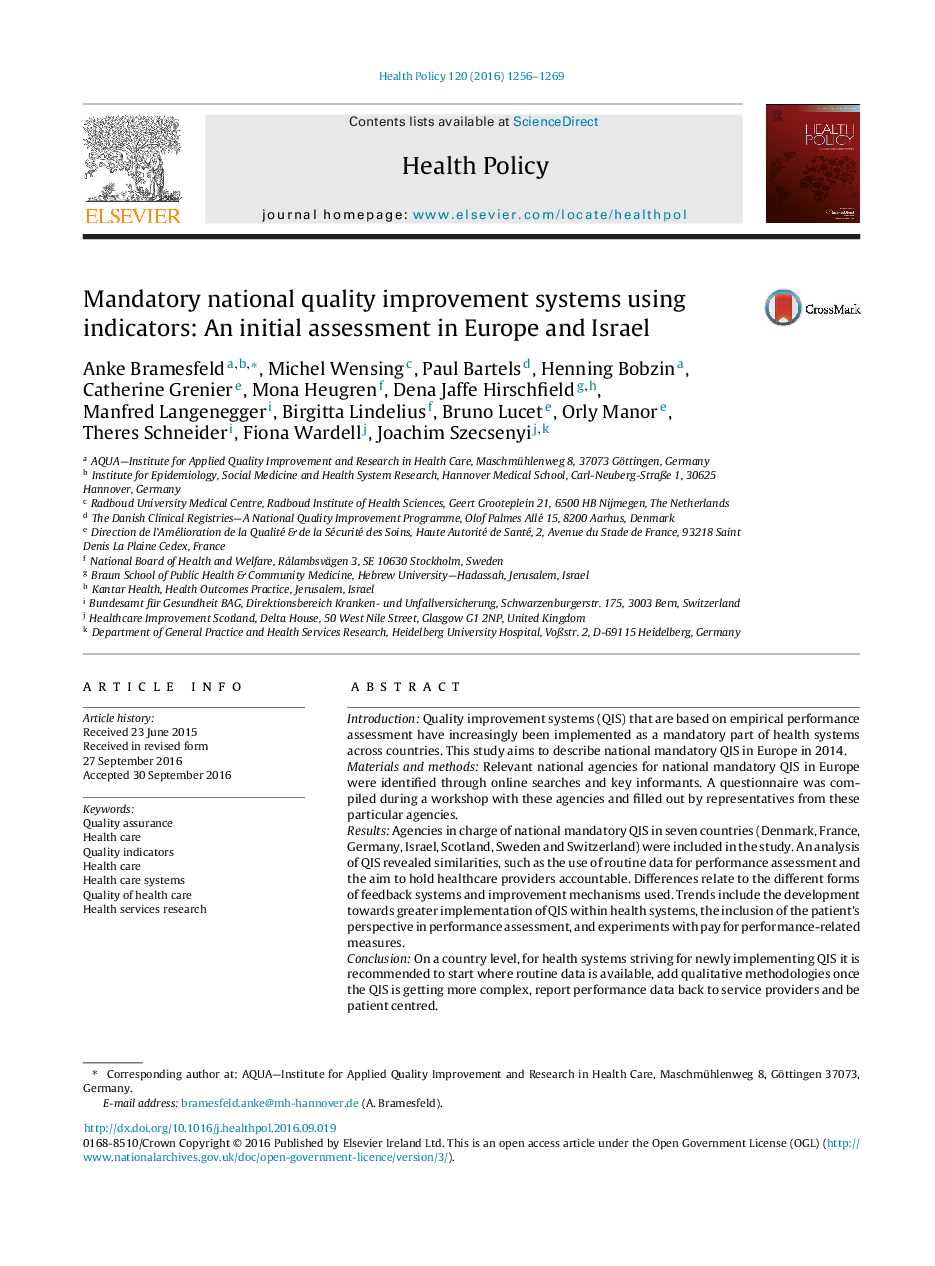| Article ID | Journal | Published Year | Pages | File Type |
|---|---|---|---|---|
| 5723429 | Health Policy | 2016 | 14 Pages |
â¢Since the turn of the century more and more health systems in Europe and related countries implement mandatory national quality improvement systems that operate by indicators.â¢All of these systems use at some point routine claims data for quality measurement. They differ in the way that they hold service provider accountable.â¢All systems strive for further development, stretching out to more healthcare sectors, broadening assessment methodologies such as including patient survey or peer assessments.â¢Countries aiming to implement a national quality assurance system shell start in sector where routine data is available, build in data feedback mechanisms and patient centredness.â¢A cross-country exchange on technical issues of implementing national quality improvement systems enables systems to learn from each others, find a common language and strive for a common understanding of quality of care assessment in Europe and related countries.
IntroductionQuality improvement systems (QIS) that are based on empirical performance assessment have increasingly been implemented as a mandatory part of health systems across countries. This study aims to describe national mandatory QIS in Europe in 2014.Materials and methodsRelevant national agencies for national mandatory QIS in Europe were identified through online searches and key informants. A questionnaire was compiled during a workshop with these agencies and filled out by representatives from these particular agencies.ResultsAgencies in charge of national mandatory QIS in seven countries (Denmark, France, Germany, Israel, Scotland, Sweden and Switzerland) were included in the study. An analysis of QIS revealed similarities, such as the use of routine data for performance assessment and the aim to hold healthcare providers accountable. Differences relate to the different forms of feedback systems and improvement mechanisms used. Trends include the development towards greater implementation of QIS within health systems, the inclusion of the patient's perspective in performance assessment, and experiments with pay for performance-related measures.ConclusionOn a country level, for health systems striving for newly implementing QIS it is recommended to start where routine data is available, add qualitative methodologies once the QIS is getting more complex, report performance data back to service providers and be patient centred.On the inter-country level exchange of information between agencies commissioned with implementing national QIS is very much needed for1.Better understanding the other systems;2.Gaining inspiration;3.Working towards obtaining better evidence on the impact that the different tools used and measures taken by national QIS have on the quality of care at health system level.
